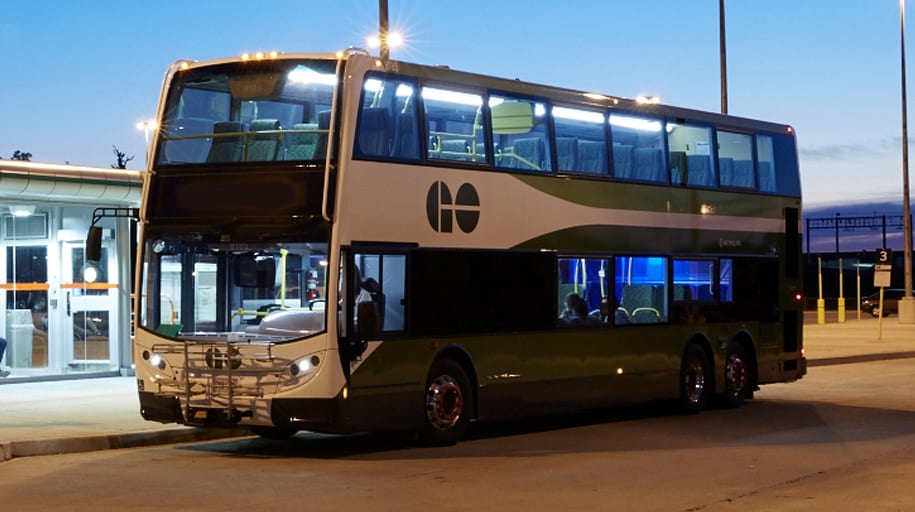Health care workers depend on GO Transit during COVID-19
During COVID-19, a group of health care professionals appealed to Metrolinx to get to work on time.
Mar 19, 2020
While many others are taking a pause and working from home, there are many people who must still wake at dawn and head off on GO Transit buses and trains.
There are a legion of essential workers and travellers that rely on GO Transit and UP Express every day, because staying put is not an option. Many of these people support our society’s most vulnerable people.
"Health-care workers can’t work from home. It is already stressful knowing we are working through a pandemic, the last thing we need to worry about is how we are going to get to work"- Toronto health care worker Annu Anhirode.
Annu Anhirode is one of those people. Anhirode works 12-hour shifts at a downtown Toronto hospital, and showing up late or a lot earlier are not very good options.
Annu Anhirode (submitted by Annu Anhirode)
“Health-care workers can’t work from home. It is already stressful knowing we are working through a pandemic, the last thing we need to worry about is how we are going to get to work,” says Anhirode.
Earlier this week, Anhirode reached out to GO Transit officials to explain that the planned temporary reduction in GO service meant some health care workers in her community would have trouble making it to work on time. They depend on early morning train service to get to Toronto’s downtown hospitals by 7:00 a.m.
A GO bus waits at a platform in this early morning file shot. (Metrolinx photo)
Metrolinx officials were able to quickly adapt and get additional GO bus service added that will get Anhirode and her fellow workers downtown on time. Those needing it can catch a GO bus at Mount Pleasant GO station at 5:40 a.m. and runs express to Union Station.
Morning train trips to return
As well, starting, Monday Mar. 23, those early morning train trips have been changed, to leave at the regular times.
- The first train of the morning on the Kitchener GO line will leave Georgetown GO Station at 5:29 a.m., once again arriving at Union at 6:32 a.m.
- The first train of the morning on the Barrie GO line will, once again, leave Allandale Waterfront GO Station at 4:50 a.m., once again arriving at Union at 6:33 a.m.
Anhirode says the she was initially very stressed when she learned about Metrolinx’s plans to reduce service during the COVID-19 pandemic but when she heard back from Metrolinx chief operating officer Ian Smith, she was impressed by how serious the transit agency is taking the situation.
“Someone acknowledged my concerns and took the time to understand how these changes impacted commuters,” she says. “throughout the next few days they were accommodating to my needs and provided peace of mind during all the chaos. It was a big stress release.”
A GO train moves across a bridge. (Metrolinx photo)
GO bus driver Peter Renzi has been walking the platform since earlier this week when the special GO bus was added ensuring no passenger was left behind. He says it’s a privilege to be out on the front lines helping get health care workers to their jobs on time.
GO bus driver Peter Renzi at Mt. Pleasant GO station in the early morning hours (submitted by: Peter Renzi)
For many people, during the province-wide response to COVID-19, it’s all hands on deck. Whether it’s health care workers, first responders, transit operators or those running needed businesses, there are a lot of people that must come to work every day.
Annu Anhirode and her fellow nurses aren’t pausing. They’re carrying on, and they are the reasons GO Transit staff, like driver Peter Renzi, are on hand every day as well.
by Scott Money Metrolinx editorial content manager
